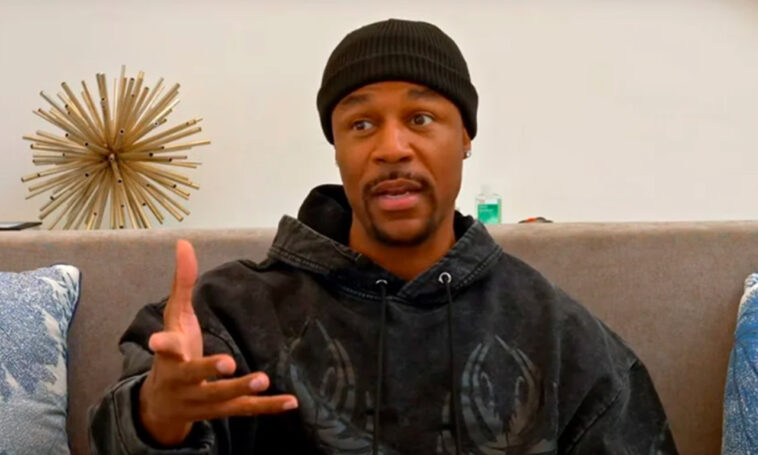R&B icon Tank recently shared his insights on homophobia within the Black community during an honest conversation on the latest episode of the “Holdin Court” podcast. Known for his support of the LGBTQ+ community, Tank has long been a trailblazer in the music industry, which has historically been resistant to queer representation. In his candid discussion, he opened up about his personal experiences with homophobia, the societal pressures that Black men face, and how spirituality influenced his journey of acceptance.
Tank, 48, has been a staunch ally to the LGBTQ+ community throughout his 30-year career in music, often speaking out against discrimination. His recent appearance on the podcast brought a much-needed perspective on the complicated relationship between Black men and homophobia. He expressed that in Black culture, being labeled gay is one of the most damaging things a man can experience. As Tank explained, being called gay is often used as an insult or a weapon to attack a Black man’s character.
“There’s something about Black men and the homosexual conversation that is a mess,” Tank shared in a clip from the podcast posted on YouTube. “The phobia as it relates to Black men is the elephant in the room. No one will actually articulate their devastation. You have to think, for a Black man the worst thing to be called is gay.”
He went on to say that the use of “gay” as a weapon is ingrained in the culture, especially when people want to bring down a Black man. “The first thing somebody’s gonna allude to, whether you are gay or not, when they’re trying to assassinate your character or get off the highest joke imaginable, they’re going gay first,” Tank said. This perception, he argued, has led to a damaging stigma against Black men and sexuality, often misinterpreting vulnerability or softness as a sign of weakness or emasculation.
Tank also acknowledged the widespread belief that there is a “gay agenda” that affects Black men, an idea often perpetuated by certain segments of society. Big Court, a co-host of the podcast, echoed the sentiment, claiming that the push for what some see as a “gay agenda” is being driven through media, fashion, and societal norms. Tank, however, rejected the notion of a deliberate push to make Black men gay.
“I’ve never seen anything that made me say, ‘Oh wow, I wanna be gay. I’m inspired to be gay because I saw that outfit,’” Tank said, dismissing the idea of an agenda. He added that entertainers such as Prince and Rick James celebrated their individuality and style without fear of judgment, showing that expressions of masculinity could exist alongside elements of femininity without the threat of being labeled gay.
Tank also opened up about how his upbringing in the church contributed to his early understanding of homophobia. Raised in a religious environment that labeled homosexuality as an “abomination,” Tank admitted that he, too, initially struggled with accepting the LGBTQ+ community. However, as he grew older and began to live his life outside the constraints of this mindset, he learned to accept that different paths and different identities could coexist.
“I understand the phobia because I grew up in it,” he explained. “I was raised that gay was an abomination. Not just a sin, but the worst.” However, Tank emphasized that his spiritual journey evolved, and his belief in a higher power transcended the rigid structures of religious dogma. “I serve the God of all things, not one thing,” he said, demonstrating how his understanding of faith has expanded to embrace the diversity of human experiences.
Throughout the conversation, Tank and his co-hosts also discussed how Black men often feel uncomfortable when approached by others, particularly when it comes to expressing attraction. They noted the double standards that exist in society regarding bisexuality, particularly the way bisexual women are more accepted than bisexual men.
Tank’s reflections on homophobia within the Black community are timely and necessary, as discussions about masculinity, sexuality, and identity continue to evolve. While the conversation around LGBTQ+ rights in the Black community is far from over, Tank’s openness about his experiences and his journey to acceptance offers a glimpse of progress.
By sharing his story, Tank hopes to encourage more Black men to reflect on their views about sexuality and embrace a more inclusive perspective. In a world where societal norms often define how men should behave, Tank’s message serves as a reminder that authenticity and self-acceptance are key to breaking down the walls of homophobia.







Join the Community and Be a Part of the Conversation
You must be logged in or registered to post a comment.